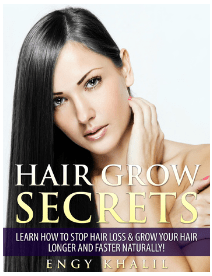Dandruff is a harmless condition, but too much dandruff falling off your scalp can be an embarrassing condition. So, we have included some tips on how to get rid of dandruff. But, first, have a look at what dandruff is?
What is dandruff?
Dandruff is a common condition in which there are itchy white and red scales on the skin of the scalp. These scales are flaked off from the skin of the scalp leaving behind a condition called dandruff. If the scalp is dry and flaky, then dandruff can occur.
This condition is not harmful to your skin, but it can be embarrassing. Seborrheic dermatitis can result in dandruff on your scalp. However, this condition can occur in babies too. If seborrheic dermatitis occurs in children, then it is called a cradle cap. It is an itchy condition of the scalp, but it can also involve mustaches, chest hair, and, yes, ear.
The dry flakes you brush off your shoulder and collar are called dandruff. But it is essential to know that dandruff is not related to your hair. Instead, it is a skin condition.
What is the cause of dandruff?
The leading cause of dandruff is not known. But studies show that a fungus can result in dandruff. This fungus is known as Malassezia, which may contribute to the development of dandruff.
Another theory about this fungus is that a person’s immune system may overreact to the fungus resulting in dandruff.
There are few triggers of dandruff which include sickness, stress. As well as cold weather can also trigger dandruff. It can also make it worse.
Another common cause of dandruff is seborrheic dermatitis. In people with seborrheic dermatitis, dandruff can also involve hair of other parts of the body like the center of the chest, face, and ear.
Other common causes of dandruff include dry skin, contact dermatitis, fungus Malassezia, and other skin conditions such as eczema and psoriasis.
Dandruff can also be caused by a diet high in sugar and bad fats, resulting in insulin spikes. This can lead to stimulation of hormone surges which can result as a trigger of more oil release from the skin and resulting in dandruff.
Symptoms of dandruff
These include:
- Small or large yellow greasy scales.
- Itchy flakes involving hair of scalp, chest, mustaches, face, and ears.
- Itchy skin of the scalp.
- Cradle cap in infants due to scaly scalp
- Scales of skin on your shoulder and collar.
Risk factors of dandruff
- Specific skin condition like psoriasis and eczema
- Diseases that affect the nervous system causing dandruff
- Diseases are affecting the immune system.
- Male gender, according to few pieces of research, male hormones may play a more significant role in developing dandruff.
- Age, dandruff usually involves adult age.
Types of dandruff
- Dandruff involving dry skin of the scalp. This type of dandruff usually occurs in winters due to taking a hot head bath. This results in a scaly scalp. In addition, it presents with symptoms of dry white scales on the scalp and the feeling of tightness.
- Dandruff involving oily skin. This occurs to the accumulation of oil on the scalp. The glands of the scalp produce oil; this oil accumulates in the skin resulting in scaly and itchy flakes of the skin. It presents with symptoms of yellow flakes on the skin. These flakes are greasy and itchy.
- Fungus-related dandruff. Fungal Malassezia survives oil in the skin of the scalp and produces oleic acid, which results in scaly and itchy skin. In addition, it presents with symptoms of itchy yellow flakes.
- Disease-related dandruff; mainly includes skin conditions like eczema and psoriasis. These conditions produce an excessive amount of skin cells which, when it comes in contact with oil, result in the formation of dandruff on the skin. It presents with silver-colored scales producing redness and mild itching.
- Dandruff due to seborrheic dermatitis involves the skin of the neck, scalp, chest, face, and skin behind ears. It presents with symptoms of huge yellow flakes, which cause greasiness and irritation.
- Dandruff is caused by hair products, i.e., hair sprays, gels, and conditioners. These products accumulate in the skin, causing dead skin and resulting in dandruff. It presents with symptoms of yellow flakes, itchy skin, and hair loss.
Also Read: What Is The Best Age For Hair Transplant In Dubai?
How To Get Rid Of Dandruff Using Home remedies?

How To Get Rid Of Dandruff Using tea tree oil?
Indeed, tea tree oil has been used to treat diseases going from skin break out to psoriasis. It is additionally demonstrated to have microbial and mitigating properties, which may help lighten manifestations of dandruff.
Truth be told, as indicated by one audit, tea tree oil is successful at battling the unusual strain of the organism that can produce both seborrheic dermatitis and dandruff.
In addition, tea tree oil reduced the importance of indications by 41% and fixed oiliness and irritation.
Tea tree oil can annoy those with delicate skin. It’s ideal for weakening it by adding a couple of drops of oil like coconut oil before applying it straightforwardly to the skin.
Also Read: 10 Best Oils To Get Healthy Hair
How To Get Rid Of Dandruff Using coconut oil?
Coconut oil can help to improve the dryness of the skin and can make the skin hydrated. One research shows that it can treat eczema, the skin condition that can cause dandruff.
Applying it continuously for eight weeks can reduce symptoms by almost 68%. This oils help to get rid of dandruff for some days.
How To Get Rid Of Dandruff Using aloe vera?
It is used to heal skin conditions like psoriasis and cold sores and is also beneficial in dandruff treatment.
Also Read: Best Ways To Reduce Stress And Anxiety
How To Get Rid Of Dandruff Minimizing stress level?
As we know that stress is a trigger of dandruff, so if you are suffering from severe and persistent dandruff, then it is recommended to try reducing stress levels to get rid of dandruff. Did you know, stress can also induce hair loss?
How To Get Rid Of Dandruff Using Aspirin?
An essential component of aspirin is salicylic acid which is also an essential component of dandruff relieving shampoos.
For an easy home remedy, crush two aspirin tablets into powder and them in your shampoo to treat dandruff.
Also Read: Home Remedies For Hair Growth And Receding Hairline Treatment
What is persistent dandruff?
Chronic and persistent dandruff, also known as severe dandruff, is caused by a chronic skin condition known as seborrheic dermatitis.
It is also called by fungus irritating skin of the scalp and also due to over activation of the immune system against fungus.
It can present with symptoms of severe itchy scalp, flakes falling off your skin, and hair fall.
Causes of persistent dandruff
Persistent dandruff or severe dandruff occurs due to a severe condition known as seborrheic dermatitis.
Seborrheic dermatitis is a skin disease. This disease results in itchy, scaly flakes n the skin. It results in the redness of light-colored skin and causes light-colored patches on darker skin.
There are many triggers of seborrheic dermatitis; common triggers are stress, sickness, immune system, hormonal changes, hair products, chemicals, and harsh detergents.
Symptoms of severe dandruff
Persistent dandruff or seborrheic dermatitis can cause the symptom of
- Scales on scalp, eyebrows, mustache, and beard
- Redness of skin
- Itchy skin
- Greasy skin
- Patches of skin are covered with scales or crusts.
When to see a doctor for dandruff?
You need to see the doctor when you have the following symptoms:
- When you are uncomfortable, you lose sleep and become distracted from your daily life routine
- You keep on suspecting that your skin is infected
- Your condition results in embarrassment and anxiety
- You have tried many self-care steps without any success
Risk factors of chronic dandruff
Several risk factors raise the risk of developing seborrheic dermatitis. These risk factors include:
- Neurological conditions such as depression, Parkinson’s disease
- Some medications
- Weaken immune system which can appear in a disease like HIV or aids and alcoholic pancreatitis
- When you recover from stressful medications such as after the treatment of heart attacks
Also Read: Best Home Remedies For Cystic Acne Treatment
How to get rid of persistent dandruff?
The following step is essential to get rid of dandruff that is persistent and severe.

Make sure that you have dandruff
Before you start treating to get rid of dandruff, ensure it’s not one of two different possibilities.
A dry scalp with gentle dryness, flakiness, and minor shedding shouldn’t be mistaken for “valid” dandruff.
Your scalp condition will change after some time, and a significant number of you will see a change with the seasons or with different variables in our current circumstance.
Frequently, you’ll notice this sort of gentle response happen during occasional changes or when you’re presented to overabundance heat styling, and you can mitigate it essentially by dialing back the warmth or changing to additional hydrating recipes.
Dandruff, then again, has a lot more grounded impact. The situation of natural dandruff can typically be perceived by skin cells tumbling off in the medium to massive clusters that are usually a little oily.
Also Read: Best Skincare Routine For Oily Skin
How To Get Rid Of Dandruff Using Antifungal medicines?
Whenever you’ve confirmed that you have dandruff, head to your closest pharmacy and begin perusing those ingredient labels.
Essential ingredients like pyrithione zinc, ketoconazole, and selenium disulfide are antifungal and have shown excellent outcomes in lessening dandruff.
They’re an excellent expansion to your in-shower arms stockpile, famous Selsun Blue, which contains cooling menthol and a portion of selenium sulfide. (Leave it on for two minutes to get the full impact.)
In addition, some of these ingredients are accessible in remedy adaptations, says the dermatologist. “The distinction between remedy and OTC shampoos is the percentage of the active ingredient.”
Coal tar and its ingredients have likewise been ordinarily used for treatment to get rid of dandruff, yet alerts against utilizing these ingredients can be excessively brutal. In addition, they’re not extraordinary for the scalp and hair follicles that the length of treatment will fluctuate dependent on the individual.
Yet, if you don’t perceive any change following half a month of utilization, it’s an ideal opportunity to book that derma appointment.
It’s crucial to recall that regardless of whether you do see improvement, you could encounter more flare-ups down the line. However, some may require ongoing treatment.
Also Read: The Best Time Of Drinking Water
How To Get Rid Of Dandruff Washing Your hair more often?
Although we know that hair has nothing to do with the development of dandruff, it is not essential to avoid washing your hair to prevent the worsening of dandruff.
Many people think that over-washing hair can result in the worsening of dandruff, but it is not valid. As we know, the use of hair products can cause dandruff, so it is recommendable to wash your hair after using hair products.
Some researchers say that you should wash your hair daily in the case of mild dandruff until you get rid of dandruff. If you don’t use many hair styling products, you don’t have to wash your hair daily.
How To Get Rid Of Dandruff Trying deep treatments?
Regular deep treatments of hair are recommended whether or not you have dandruff. It is recommended because of the relaxing effects of deep treatments.
These leave your hair with better results. But in people with dandruff, deep treatments are essential and should be added in routine to get rid of dandruff.
Use moisturizers like coconut oil to keep your skin hydrated. It helps the people with irritation.
Also Read: Benefits Of Bone Broth Powder From Intentionally Bare – A Healthy Superfood
How To Get Rid Of Dandruff Brushing your hair?
While you are having dandruff issues, make sure to brush your hair regularly, and it works out to get rid of dandruff.
Brushing stimulates the scalp and increases the circulation to that area of the scalp.
How To Get Rid Of Dandruff Trying essential oils?
Rosemary oil, coconut oil, lavender oil, and green tea extract have excellent anti-inflammatory properties and help fight dandruff.
The great thing about those oils is that they help to get rid of dandruff away from your life. In addition, the calming effect of these oils can be soothing for the skin and can help prevent irritation and itching related to dandruff.
This remedy is suitable for both oily and dry scales of dandruff.
Also Read: Relax Massage Therapy And Top 10 Massages For Your Mind And Body
How To Get Rid Of Dandruff Using prescription of a doctor?
In cases when dandruff is extreme and severe, and no remedy seems to work for it, then it is essential to see your doctor.
Most of the medicated treatments prescribed by the doctor are strong versions of OTC shampoos and medications. With the use of these medications, you can see quick relief in symptoms of dandruff.
However, people with long-standing dandruff are prescribed medicines to keep the sebum level low, along with the use of dandruff-free shampoo.
The main thing you need to avoid in the case of dandruff is sulfates because sulfates can be very harmful and itchy for sensitive and scaly scalp.
Your doctor can prescribe you short-term steroids. These typically work within a week and help to alleviate the symptoms of dandruff. And if there is dandruff after two to three weeks, then at least the uncomfortable symptoms will reduce.
According to expert advice, once weekly medicated shampoo, anti-inflammatory shampoo, and deep treatments are highly recommended for persistent and severe dandruff.
Also Read: What Foods To Eat After Hernia Surgery And What Should Avoid?
Conclusion:
Hence, we conclude that dandruff is a harmless condition and can be treated with home remedies and medications. Try to get rid of dandruff in any way mentioned above.
Must Read: How To Get Healthy And Stay Healthy?
Featured Image By Hand photo created by cookie_studio – www.freepik.com
Image Sources: Image by Jonas Svidras and Pexels from Pixabay




Comments are closed.